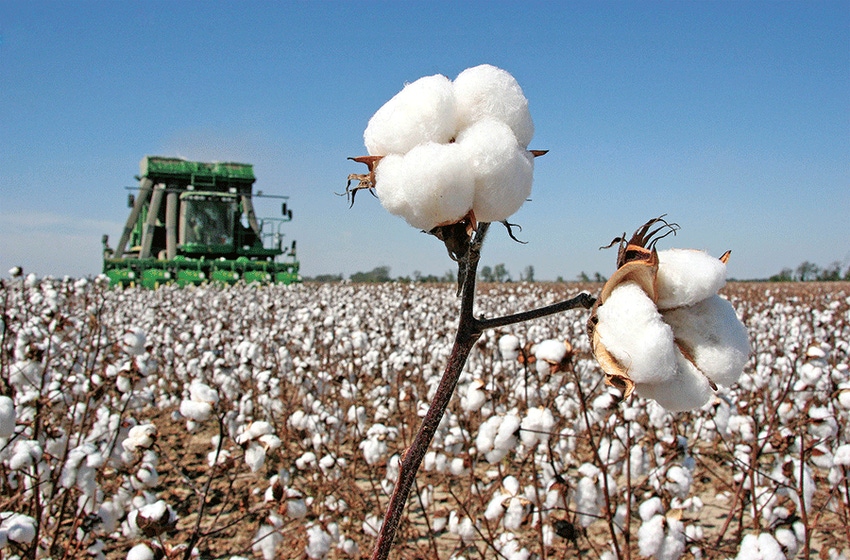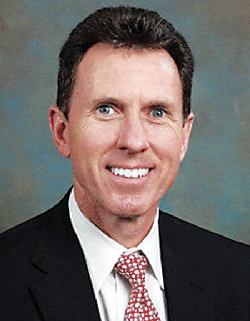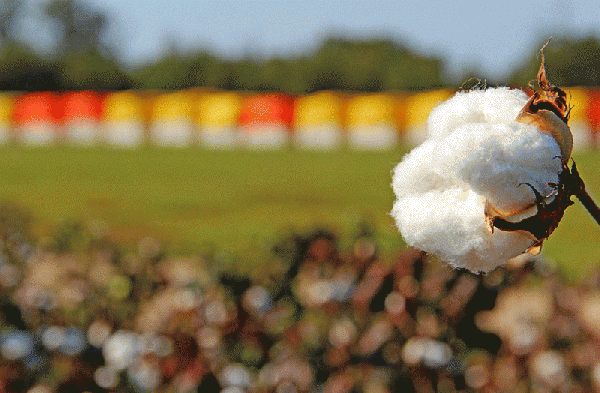
Even though the years-long negotiations over Brazil’s complaint to the World Trade Organization about alleged violations by U.S. cotton has finally been settled, trade policy issues continue to confront the industry, says Gary Adams.
Now U.S. cotton co-ops and private merchants have been dealing since October with an investigation launched by the Turkish government alleging dumping of American cotton into Turkey.

GARY ADAMS
“They’re essentially alleging that U.S. cotton is either being sold to Turkish mills at a price lower than would be sold to a domestic mill, or that it’s being sold below the cost of production,” says Adams, who is president and chief executive officer of the National Cotton Council. He spoke at the annual joint meeting of the Mississippi Boll Weevil Management Corporation and the Mississippi Farm Bureau Federation Cotton Policy Committee.
Stay current on what’s happening in Mid-South agriculture: Subscribe to Delta Farm Press Daily.
“Based on every analysis we’ve done, we don’t see any economic basis for this investigation,” he says. “There is political motivation behind the investigation on the part of the Turkish government because the U.S. government has been conducting anti-dumping investigations related to Turkish steel products coming into the U.S.
“There’s been a lot of back-and-forth going on, but what we hope can be avoided is an outcome where the Turkish government imposes a duty or tariff on imports of U.S. cotton. There would not be similar tariffs to imports of cotton from other countries, putting U.S. cotton at a significant disadvantage and jeopardizing what in recent years has been our second largest export market — as high as 2 million bales in a year.
“We have made submissions in the matter, and merchandising companies have provided detailed information about their transactions into Turkey. This has been a significant burden on the companies in terms of providing information and being as cooperative as possible in this process. We may not have an answer on this investigation until sometime in the October-March period.”
Trade Promotion Authority approved
A measure to give the president Trade Promotion Authority, or “fast track” authority, after acrimonious debate, finally was approved by the House and Senate and has been signed by the president.

“Our message from cotton’s standpoint, as other countries continue to attack the U.S., is to say to the WTO, ‘We’re not the problem — we’ve made significant policy changes.'"—Gary Adams, National Cotton Council
“This should allow the administration to move forward with negotiations that have been ongoing with 12 countries for a Trans Pacific Partnership trade agreement,” Adams says. “The agreement wouldn’t have as much impact on raw cotton trade as on textile trade. But we’re watching this closely to be sure we get a rule of origin on textile products coming into the U.S. that falls in line with what we have under the North American Free Trade Agreement (NAFTA), and that we get protection for some sensitive products.
“Right now, it seems that a lot of these objectives are being met. The U.S. textile segment has encouraged the administration to move forward and wrap up the TPP negotiations, and it’s possible they can do that in calendar 2015 or early 2016.”
Cotton continues to be “a hot topic” within the World Trade Organization, Adams says. “Discussions have been ongoing for the last several years. I don’t know if we’ll see much movement on this, because we’re seeing some of the same entrenched positions we’ve seen over the past several years. I think the U.S. has dug in on one side, saying to the WTO ‘If you want to restart the broader negotiations, we must look at a recalibration of what today’s agriculture looks like, and hold developing countries more accountable, particularly advanced developing countries.
“Our message from cotton’s standpoint, as other countries continue to attack the U.S., is to say to the WTO, ‘We’re not the problem — we’ve made significant policy changes, and you really have to look at what other countries are doing if you want to figure out why the cotton market is where it is.’
“We continue to insist, too, that other countries need to be as transparent and accountable as the U.S. We’ll continue to monitor these issues through the rest of this year’s trade negotiations and insist that other countries have to step up and provide the same transparency that the U.S. does in its trade dealings.”
About the Author(s)
You May Also Like




